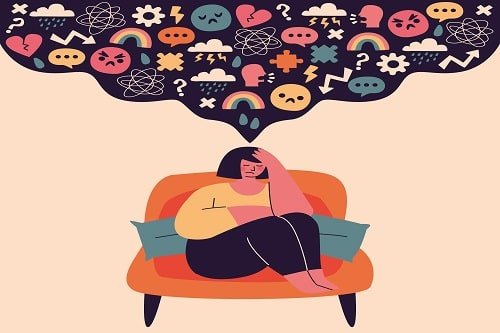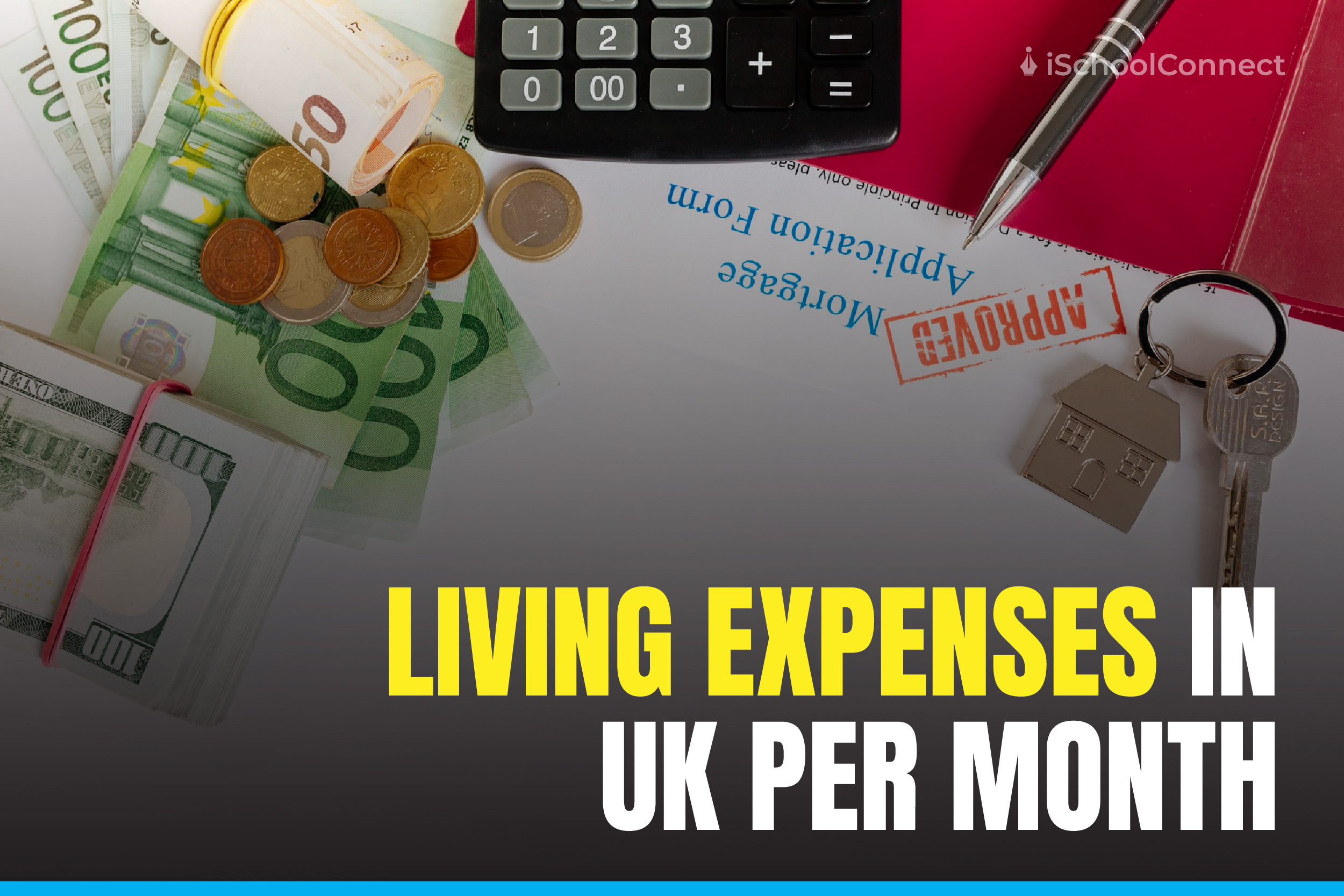Table of Contents
Today, students manage many things at the same time – from attending classes and completing assignments, to giving exams, doing internships, and more. Setbacks, difficult times, failure, they experience it all. This might lead to the feeling of being overwhelmed or constantly worried about things. Depression and anxiety seem like the two sides of the same coin. They are part of a flywheel: Being depressed often makes us anxious, and anxiety often makes us depressed. But how to overcome depression and anxiety? Let’s read and find some ways of self-help.
But first, why is it so difficult?

Anxiety and depression tend to drain your energy and drive, thus making it difficult to take steps that help you feel better. It is common for students to feel bogged down due to various circumstances.
Due to the COVID-19 pandemic, many of us are dealing with social distancing, isolation, and lockdowns. This has led to students feeling demotivated and anxious about their careers, which makes it harder to cope and deal with the symptoms of anxiety and depression.
Anxiety and depression are common. These affect several millions of people, and that may also include some people in your life. That being said, there are always ways to combat feelings of despair and improve your mood.
The key is to realize that you are more in control than you think. Start small and build from there. Take a walk around the block, call a loved one, or do any of the several small things that keep you moving and not overthinking.
Believe that wherever you are right now isn’t where you will always be. The key is to be accepting and loving towards yourself. Here are some things you can do to take care of yourself, emotionally speaking-
How to overcome depression and anxiety?
1. Identify the signs

You know what’s normal for you. If you feel like you are experiencing feelings that are not typical for you, this might be construed to be a sign of anxiety/depression. Identify these signs of depression and anxiety.
Having said that, there are some self-diagnosis tests available online that may help you better understand what’s happening. The objective of managing and treating depression and anxiety is to create a series of options that all work together to help, to some degree, whenever you need to use them.
The first step is always the hardest. Singing along to your favorite music or taking a stroll are immediately executable things. It can act as a mood boost for hours and may motivate you to keep taking such steps.
Allow yourself to feel what you’re feeling – and know that it’s not your fault. Depression and anxiety are not the results of failure and weakness. These small and consistent steps can help you lift what seems to be the anchor of depression holding you down.
2. Reach out and stay connected
Getting some support from your loved ones plays a crucial part in battling and overcoming depression. It may be difficult to maintain a healthy perspective on your own. Talk to your parents about how you are feeling and find ways to overcome this feeling.
Overcoming depression requires sustained efforts. It is normal to feel ashamed of your situation or guilty for neglecting certain relationships. But taking part in social activities and staying connected with your friends can make a huge difference in your mood and perspective.
Reaching out is not a sign of weakness. And if you feel like you do not have anyone to turn to, it’s never too late to build new friendships or a support network. You can join group activities, classes, etc., to build a social network. Getting a pet tends to work too.
3. Do things that elevate your mood

Do things that make you feel good and energize you. This can involve following a healthy lifestyle, setting limits to work/studies, etc. You can also schedule activities that you enjoy doing, such as reading a book, writing, watching a show, painting, etc.
We understand that you cannot push yourself to have fun, but you can push yourself to do things that bring you joy, even when you don’t feel like it. You’ll immediately feel more upbeat and energetic as you make time for your hobbies or a sport that you like.
You could also take a trip with friends. Make sure you keep your stress in check by practicing relaxation techniques. While all this is going on, aim for 8 hours of sleep.
You can also develop a “wellness bucket” to deal with things :
- Spend some time outside, and soak in the sun.
- Make a point to read a good book, listen to a podcast or calming music every day.
- Do something spontaneous for once.
4. Hop on to that running track!
When you’re suffering from anxiety and depression, even getting out of bed can feel like a daunting task. Working out may seem like a far-fetched thing at such times. But it has been proven that exercising is a powerful depression fighter.
Having a regular workout regimen can have effects as good as medication in combating depression and anxiety. It can also help prevent any relapse.
Remember, it is okay to start small. You do not need to work out like “The Rock” every day. Even a 10-minute walk can improve your mood for hours!
Yoga is a great stress-buster and is proven to help with depression and anxiety alike. Exercise releases endorphins and lowers your cortisol (stress hormones) levels. Most people feel fatigued when they start working out, but it is a temporary thing. Stick with it, and the situation will improve.
5. Eat good food

Studies have shown that what you eat has a very direct impact on the feelings you experience. Reduce your intake of foods that can adversely affect your moods, like caffeine or alcohol.
Students also tend to skip meals, so try not to do that. Too much of a gap between meals can leave you feeling irritable.
Finding your kind of foods helps in understanding patterns in your diet. It will also help you with the right energy to focus on important tasks like studies, work, etc. Try to add more Vitamin-B-rich foods and food rich in omega-3 fatty acids to your diet, as these tend to elevate and stabilize your mood.
6. Challenge that negativity
Feeling powerless or weak is a very normal thing to experience while you’re battling depression and anxiety. Do you feel that bad things tend to happen to you or around you, and there’s nothing much you can do about it?
Depression and anxiety put a negative spin on everything, especially the way you see yourself. When such thoughts overwhelm you, it is crucial to understand that these irrational, pessimistic thoughts are symptoms of anxiety and depression. These are called cognitive distortions, and they aren’t realistic.
“Think positive” is not the solution to this. Instead, identify the type of negative thoughts fueling your depression and replace them with a way of thinking that is more balanced.
Here are some unrealistic and negative patterns of thought that depression and anxiety supplement-
- All-or-nothing. This entails looking at things in a binary way – black or white. If there’s no middle ground, minor setbacks might make you feel like a failure.
- Labeling. This means classifying yourself based on your mistakes or shortcomings.
- Jumping to conclusions. This entails making negative interpretations about everything without any actual evidence. You tend to act like a mind-reader or a psychic, none of which is true.
- Overgeneralization. This means generalizing a single negative experience and expecting it to be true forever.
- Diminishing the positives. Depression makes you come up with reasons to downplay the positives in your life as if they do not count.
- Emotional reasoning. This means believing that the way you feel reflects reality as a whole.
Stay away from all of these modes of thinking, as they will trigger your anxiety or depression.
Self-care is not what you think it is
When you’re scrolling down Instagram, you will see a lot of posts that tell you to do you. Eat whatever you like, sleep whenever you want, stay in bed all day. It’s okay. But that’s not true.
Self-care involves building a healthy relationship with yourself – eating and sleeping right, ridding yourself of toxic thoughts and people, and doing what’s right, not what’s easy. Taking care of yourself is hard work. But it pays off in the long run.
So if you’ve taken all the steps and yet feel like you are depressed, consider seeking professional help. The professionals can help you identify signs of depression and anxiety and find you a way out.
Mental illness is nothing to be ashamed of, and needing help doesn’t mean you’re weak. Sometimes you may feel like a lost cause, but remember that is just the depression talking. Remember that it’s treatable!
Even if you are receiving treatment, the tips mentioned above can still be part of your plan. These could and will speed up your recovery and prevent any relapses.
As always, if you need to talk to someone, we are a comment away! You can also reach out to us. We’re always here to help.






